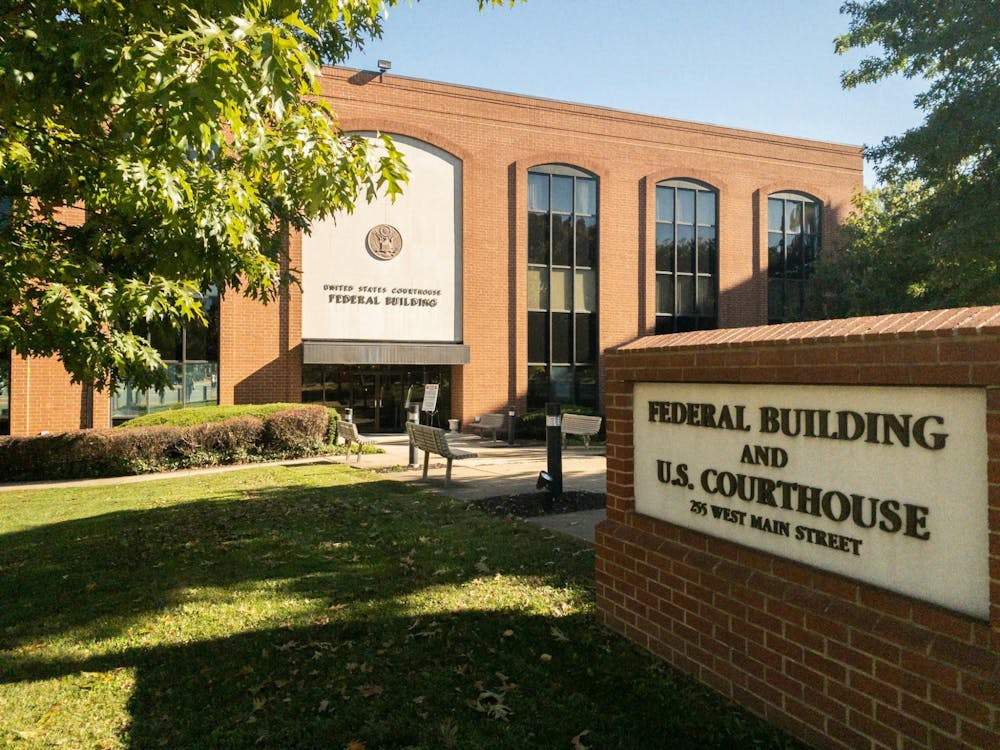Since August, Virginia has seen both of its U.S. Attorneys leave office under pressure from President Donald Trump. A month ago, the interim U.S. Attorney for Virginia’s Western District, Todd Gilbert, was strongly encouraged to resign after resisting hiring advice by the White House. More recently, the interim U.S. Attorney for the Eastern District, Erik Siebert, left his position after he refused to prosecute ex-FBI director James Comey and Attorney General Letitia James on the grounds that there was not sufficient evidence in either case. In response to Siebert’s refusal to prosecute these politically motivated cases, President Trump forced Siebert’s resignation. This pervasive instability surrounding our U.S. Attorneys destabilizes ongoing legal cases and debilitates the apolitical qualifications important to serving as a prosecutor — and in these ways, creates peril for the defense of all Virginians.
Although U.S. Attorneys manage issues of federal law, these individuals have no small role in the legal affairs at the state and individual level. U.S. Attorneys each operate within one of the 94 different districts that serve the federal government. In sum, these attorneys are the chief federal law enforcement officers within their district. The cases they manage include any violations of federal crime, such as drug trafficking, fraud and espionage — cases that are critical to protecting citizens of their respective states from these crimes.
U.S. Attorneys are appointed by the president and are Senate-confirmed. Typically, the nominations are suggested by the senators of the state, but this did not happen in the case of either Gilbert or Siebert, who were instead nominated by Trump. Indeed, this departure from tradition already created an inconsistency that could have harmed the perception of our U.S. Attorneys — a harm further perpetuated by political involvement in Gilbert and Siebert’s departures.
Losing the U.S. Attorneys for Virginia in such rapid succession destabilizes consistency in our legal prosecutors for leading legal cases, creating gaps in the knowledge and management of daily operations, which could create challenges for necessary legal prosecutions that protect our citizens. Furthermore, these vacancies also lead to new individuals being sworn into positions based on political loyalty rather than the necessary legal qualifications for the job — such as the case of Lindsey Halligan, the new interim U.S. attorney for the Eastern District and Trump’s former personal lawyer. In these ways, federal overreach not only creates instability within our U.S. Attorney system but also continues to perpetuate it by enabling the appointment of unqualified and politicized candidates.
These chaotic decisions are especially pernicious when you grapple with the essential role these positions play for Virginia’s legislativeand individual freedoms. In Gilbert’s brief stint in office alone, recent decisions on a long-standing case have directly impacted Charlottesville civilians. In 2018, whistleblowers informed Charlottesvillians that Sentara Health improperly and illegally raised their health insurance premiums to the point of having the highest in the country. The Department of Justice decided to intervene in the case through the Western District of Virginia’s office, after thoroughly screening the material and asserting that Sentara Health had cost taxpayers $665 million. However, this past June, after over three years on the case, the DOJ withdrew, making the whistleblowers' case infinitely more difficult for the plaintiffs and leaving them back on their own.
The withdrawal is intrinsically linked to Gilbert's resignation — Gilbert resigned over pressure from the Trump administration to fire his First Assistant, Zachary Lee, who ultimately became the acting U.S. Attorney who signed the withdrawal. Gilbert resisted federal pressure to fire Lee, as it is normally at the discretion of the U.S. Attorney to appoint their own deputies, and the fact that this conflict resulted in his resignation reflects yet another way federal overreach pervaded our U.S. Attorney's office. While it is unclear why the DOJ backed out of this particular case, it is easy to see that Gilbert’s resignation and replacement with Lee — who ultimately also resigned this month — leads to a loss of urgency, a change in priorities and overall instability. Pressure from all sides has led to interim and acting U.S. Attorneys making rash decisions in the past, and it will again.
While every office has its own priorities it focuses on — Southern District of New York’s Damian Williams fighting the fentanyl epidemic and Obama’s attorney Eric Holder looking at drug and gun cases — priorities have historically reflected a desire to protect citizens and their surroundings. Today, however, Virginia’s U.S. Attorneys are being used to address the vindictive gripes of a vengeful president, rather than working for whom they are meant to — the people. Our attorneys are meant to represent us, but with the rate they are coming and going every time a decision is made that the government does not like, they may never get the chance.
The Cavalier Daily Editorial Board is composed of the Executive Editor, the Editor-in-Chief, the two Opinion Editors, two Senior Associates and an Opinion Columnist. The board can be reached at eb@cavalierdaily.com.







